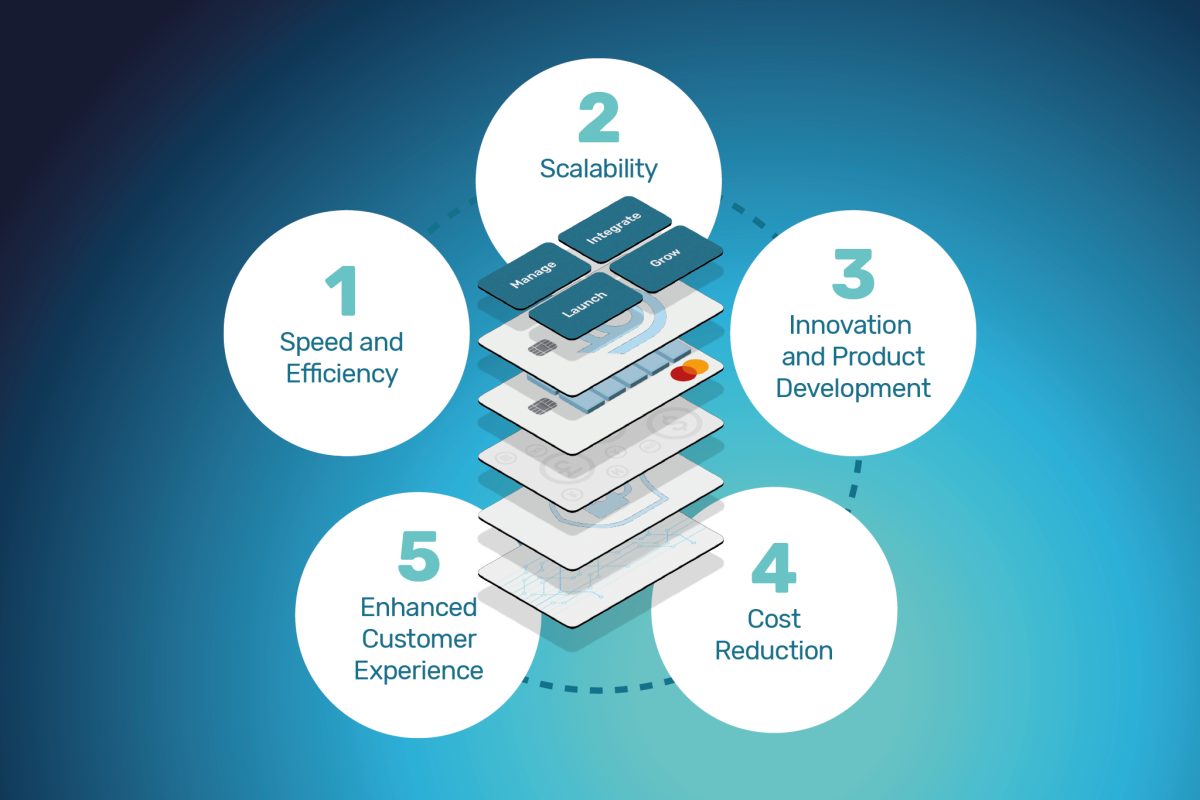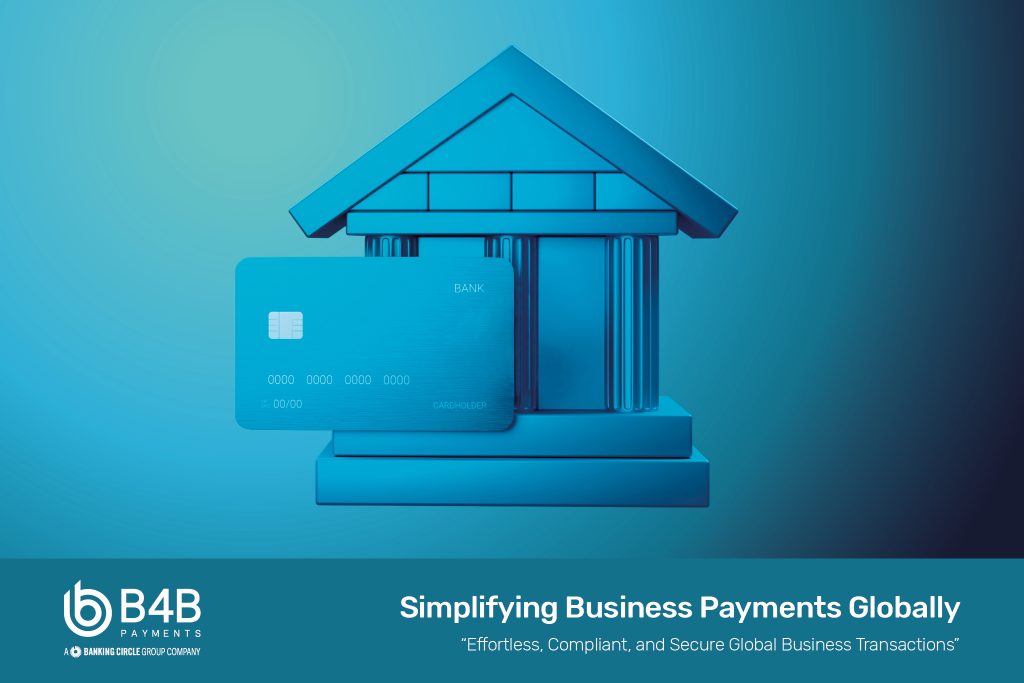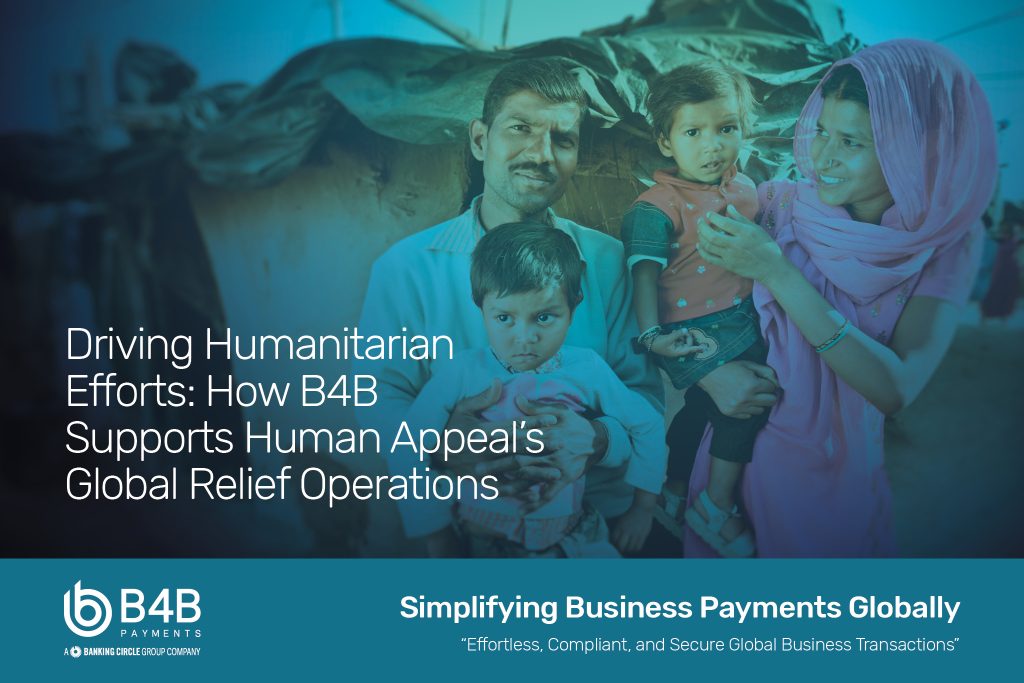5 Benefits of Banking-as-a-Service (BaaS) for Fintechs

Picture this: a small fintech startup fuelled by bright ideas but weighed down by the mammoth task of building a banking infrastructure from scratch. The clock is ticking, competitors are surging ahead, and every day spent tangled in red tape feels like a missed opportunity.
Now, imagine a solution that sweeps these obstacles aside, laying down a golden pathway straight to the heart of the financial market. That solution is Banking-as-a-Service (BaaS), the game-changing strategy that’s turning fintechs from contenders into champions.
In this blog, we will explore how BaaS offers tangible solutions for high-level decision-makers and technical individuals within the fintech industry. We’ll highlight the five key benefits of BaaS, using some real-world examples to illuminate how BaaS is shaping the future of financial services.
1. Speed and Efficiency
The first benefit of BaaS we’ll consider is its ability to enhance operational speed and efficiency, which is vital for fintechs seeking a competitive edge.
BaaS enables fintechs to leverage pre-existing banking infrastructure, speeding up their time to market. For decision-makers, this means a quicker return on investment and the ability to implement a more agile business strategy.
The integration of BaaS APIs into fintech platforms facilitates faster and more efficient development. APIs serve as the building blocks for digital services, eliminating the need for lower-level infrastructure development.
As an illustration, let’s consider a use case with a Nordic fintech start-up wishing to become a fully licensed entity.
Typically, most small businesses in the Nordics opening a corporate bank account will face lengthy processes and high costs.
The start-up wished to simplify corporate payments for small businesses but had significant challenges due to the highly regulated environment. They were able to achieve their goal by collaborating with a trusted BaaS provider.
The BaaS provider gave the fintech start-up access to its embedded finance services and API integration. This linked the fintech’s financial platform with the BaaS provider’s banking services to offer DKK, SEK, EUR, USD, and GBP accounts. Through these accounts, the BaaS provider has payment services in both local rails and 25+ currencies through SWIFT and NACHA.
The BaaS provider helped the fintech find a speedy route to market. The fintech navigated the complexities of regulations and payment technologies, while ensuring compliance and ethical conduct.
2. Scalability
Another major advantage of BaaS is scalability.
Typically, fintechs looking to grow can face the daunting task of expanding their in-house banking infrastructure—this is a complex and costly process. BaaS simplifies this by providing access to scalable banking services that can adapt to a fintech’s growth trajectory.
From a technical standpoint, the modular nature of APIs facilitates scalability. APIs allow services to be expanded or reduced based on demand. As a fintech’s customer base grows, they can easily add more services or scale existing ones. Conversely, if they need to scale down, APIs can be deactivated with minimal disruption to the overall system.
Chime, a neobank that provides consumer banking services, leverages this feature of BaaS to extend its services and cater to its rapidly growing customer base, all without needing to make hefty investments in infrastructure.
3. Innovation and Product Development
Traditionally, a significant portion of a fintech’s resources would be consumed by the task of building and maintaining a banking infrastructure. BaaS changes this equation dramatically. It allows fintechs to delegate the complexities of infrastructure to a third-party provider, thereby freeing up internal resources.
For decision-makers, this strategic shift is transformative. It means that teams can pivot from being bogged down with compliance and infrastructure management to focusing on designing competitive, unique offerings that resonate with their target audience.
The API-centric nature of BaaS is a boon for product development teams. APIs are like the building blocks of the digital world; they enable fintechs to quickly assemble, test, and iterate on new products and features. This environment of rapid prototyping is essential in a sector where being first-to-market can confer a significant competitive advantage.
With BaaS, fintechs are not just innovating on their existing products—they are in a position to expand their product portfolio altogether. Whether it’s adding new payment options, launching investment products, or integrating wealth management services, BaaS provides the tools and services necessary for fintechs to diversify their offerings.
4. Cost Reduction
BaaS can have a significant impact on a fintech’s bottom line.
Instead of investing heavily in building and maintaining in-house banking infrastructure, fintechs can leverage BaaS to access necessary banking services.
Navigating the complex world of financial regulations can be a costly affair. Compliance requires dedicated personnel, continuous monitoring, and frequent updates to systems to align with changing regulations.
BaaS providers, being specialists in the banking domain, manage these compliance aspects as part of their core services. For fintechs, this means that the burden—and cost—of regulatory compliance is significantly reduced. They can operate with the assurance that their BaaS partner is keeping them on the right side of the law, without the need to invest heavily in compliance teams and tools.
5. Enhanced Customer Experience
Improving the customer experience is a strategic priority for any fintech, and BaaS can play a pivotal role in achieving this.
BaaS allows fintechs to integrate financial services seamlessly into their own platforms, creating intuitive and convenient services for their customers.
BaaS providers invest heavily in security protocols and compliance, and by partnering with them, fintechs can assure their customers that their data is in safe hands. This trust is fundamental to customer retention and is a significant aspect of the overall customer experience.
BaaS’s streamlined approach extends to operational efficiency, which has direct implications for customer satisfaction. By leveraging pre-built banking services, fintechs can execute transactions and process requests at a much faster rate. This means quicker loan approvals, instant account updates, and real-time payment processing – key factors that contribute to a positive customer experience.
Raisin UK offers its customers a savings marketplace without having to develop the underlying banking infrastructure. Instead, they leverage BaaS APIs to open accounts, collect deposits, and interact with other banks.
Conclusion
Banking-as-a-Service (BaaS) offers powerful benefits to fintechs, driving speed, efficiency, scalability, innovation, cost reduction, and an enhanced customer experience. It empowers decision-makers to enact strategic business advantages and fosters a fertile environment for technical individuals to innovate.
The integration of BaaS APIs provides an array of new possibilities in product development, operational efficiency, and customer engagement.
BaaS is more than just a technical solution—it’s a strategic business model that helps fintechs to compete in the financial landscape. With the continued growth of the digital economy, the role of BaaS in the fintech industry is set to be a defining factor in shaping the future of finance.






